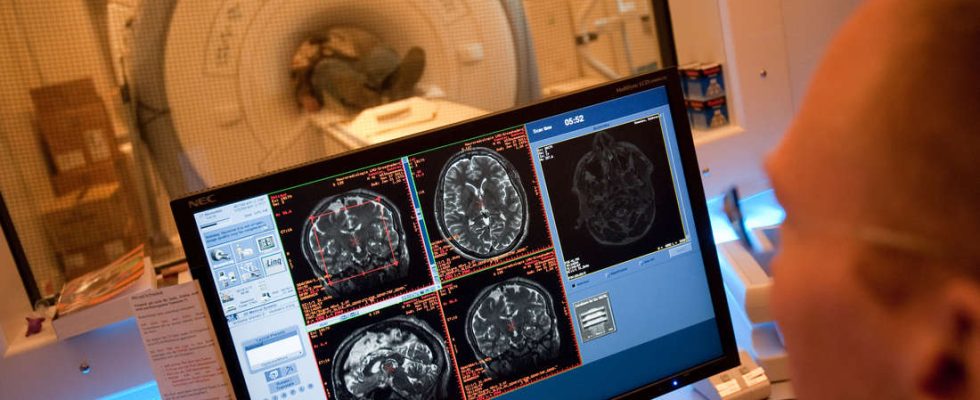The detection of brain tumors could be made easier thanks to a development from Great Britain. A prototype is currently being created.
Sheffield – A new test could help in the future to detect and treat recurrent brain tumors at an early stage. The test procedure is extremely simple: a drop of blood is enough to detect specific tumor molecules in the blood. This is obtained with a small prick of the finger – like a blood sugar test. Scientists from Nottingham Trent University researched the process in cooperation with colleagues from the University of Sheffield. The Medical Research Council funded the project.
Brain tumor: Lateral later flow testing could revolutionize early cancer detection
The doctors are currently developing the prototype of a suitable lateral flow test. The aim is to detect aggressive, recurring tumors. The tests are comparable to corona tests. This is followed by the clinical phase of the study, as follows University of Sheffield press release emerges.
This can result in several advantages for the healthcare system. If early detection tests are used across the board in prevention, the number of severe cases could be reduced. The tests are also significantly cheaper and shorter than the CT and MRI scans previously used.
Science is constantly making progress both in the early detection of tumors and in therapy. This applies to different types of cancer. This increases the chances of healing and milder cases.
More extensive testing for early brain tumor detection
Recurrent brain tumors can form even after successful therapy. Early detection is made more difficult because they occur at irregular intervals. The more closely the tests are carried out, the sooner new tumors can be diagnosed.
According to Professor Philippe Wilson from Nottingham Trent University, sufferers have so far undergone further check-ups on average every three to six months. If the new technology is mature and part of regular monitoring, weekly self-tests would be possible.
Comprehensive early detection will increase the number of diagnoses
“If you do an MRI scan six months after treatment, by that time a tumor could have already returned for a significant period of time,” says Professor Wilson.
Low-threshold testing options would probably drive this number up. However, you shouldn’t let this worry you. This is a rather rare type of cancer.

